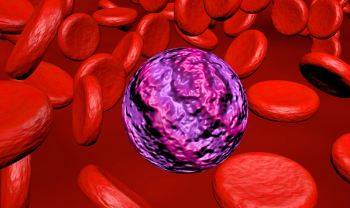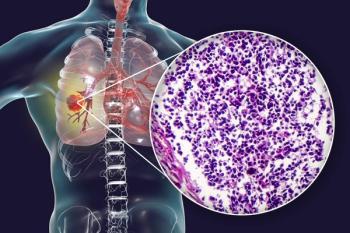
Phase 1/2 AUGMENT-101 study results revealed quick and lasting responses for patients with relapsed/refractory KMT2Ar acute leukemia.

Your AI-Trained Oncology Knowledge Connection!


Phase 1/2 AUGMENT-101 study results revealed quick and lasting responses for patients with relapsed/refractory KMT2Ar acute leukemia.

Phase 1 AC699-001 results evaluating the safety and efficacy of AC699 in patients with breast cancer subtypes support the Fast Track designation.

Results from the phase 3 AEGEAN trial led to the approval of neoadjuvant and adjuvant durvalumab for patients with resectable NSCLC.


Accelerated approval of afami-cel may expand access to therapy for patients who are unable to live near certain treatment centers.

Data from the phase 3 ADRIATIC trial support the supplemental biologics license application for durvalumab in this limited-stage SCLC population.

Investigators developed a risk model to assess whether upfront surgery can improve prognoses in a subset of cN2 diseases such as single-station N2 NSCLC.

Treatment with afami-cel may offer improved quality of life to patients with metastatic synovial sarcoma compared with continuous chemotherapy.

Results from the phase 2 AGAVE-201 trial of axatilimab for patients with relapsed/refractory chronic GVHD support the FDA approval.

CytoDyn intends to submit its final study protocol to the FDA, engage a clinical research organization, and complete preparatory work to initiate the phase 2 trial.

Subgroup analysis data from DUO-E support the European approval of durvalumab-based treatment in primary or recurrent endometrial cancer.

Findings from a population-based study suggest patients with POI may need genetic counseling regarding future risk of reproductive cancers.

Neoadjuvant/adjuvant sacituzumab govitecan showed encouraging intratumoral concentrations in patients with brain metastases as well as glioblastoma.


Investigators will present full results from the phase 3 GMMG-HD7 trial at a future medical meeting.

Data from the phase 3 MELATORCH study support the supplemental new drug application for frontline toripalimab in unresectable or metastatic melanoma.

Developers anticipate launching a first-in-human phase 1 study assessing ziftomenib/imatinib for those with advanced GISTs in early 2025.

Targeting multiple survival pathways simultaneously with ViPOR may be effective in specific molecular subtypes of relapsed/refractory DLBCL.


A recent study, published in Blood Advances, has identified that pre-HSCT conditioning induces the extracellular release of damaged mitochondria, exacerbating GVHD.

Enrollment will soon begin for the dose-expansion portion of the ongoing phase 1 trial assessing EO-3021 in CLDN18.2-positive tumors.

A recent study, published in Cell, has identified the circadian rhythm of TILs as a key determinant in the efficacy of immunotherapy treatments such as CAR T-cell therapy and immune checkpoint blockade.

Investigators are on track to launch part 2 of the phase 1 Deltacel-01 trial in September 2024.

Managing high-grade squamous intraepithelial lesions may reduce the risk of anal cancer based on data from the phase 3 ANCHOR trial.

Cancer vaccines may pair well with other forms of immunotherapy in the treatment of patients with cancer, according to Catherine J. Wu, MD.


Reduction of long-term survival following CAR T-cell therapy associated with late infections and SMN development was observed, especially in elderly patients.


Adding metastasis-free directed radiation to chemotherapy more than tripled progression-free survival vs chemotherapy alone in the EXTEND trial.
